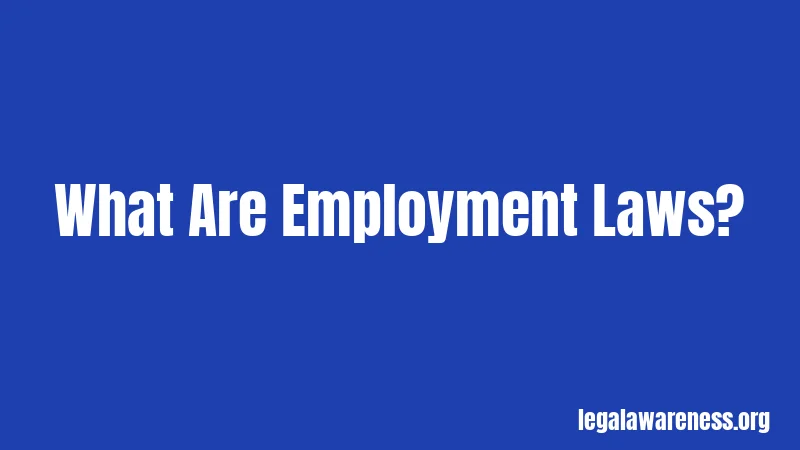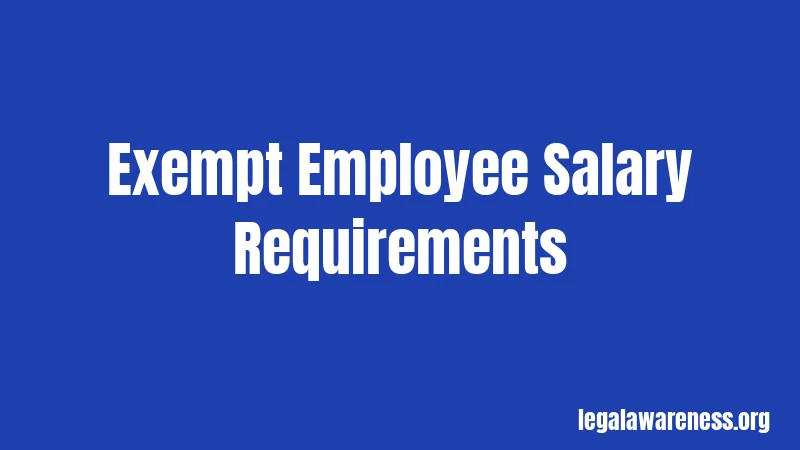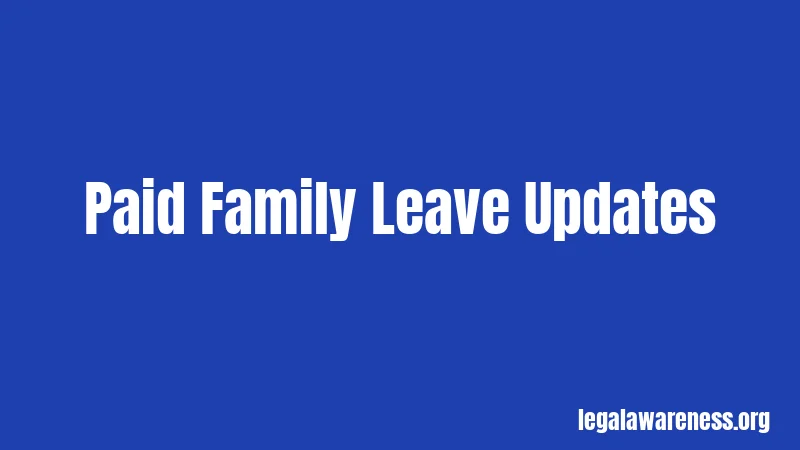Employment Laws in New York (2026): Your Paycheck Protection Guide
Most people think employment laws are just about getting fired. They’re not. These laws protect your paycheck, your time off, and your right to work without harassment. In New York, the rules are strict, and they just got stricter in 2026.
Here’s the deal. Whether you’re an employee or an employer, New York’s employment laws can hit hard if you don’t know them. Let’s break down exactly what changed this year and what you need to know.
What Are Employment Laws?

Employment laws are rules that control how employers treat workers. They cover everything from minimum wage to discrimination. They tell employers what they must do and what they can’t do.
New York has some of the strongest worker protections in America. The state doesn’t mess around. These laws exist to make sure workers get paid fairly, take time off when needed, and work in safe, respectful environments.
Think of employment laws like the rules of the road. Break them, and there are consequences. Follow them, and everyone stays safe.
Minimum Wage Increases for 2026
Okay, this one’s important. New York raised the minimum wage on January 1, 2026. Yep, that’s right.
Here’s what workers earn now. In New York City, Long Island, and Westchester County, minimum wage is $17.00 per hour. In the rest of New York State, it’s $16.00 per hour.
This was the final scheduled increase under a law passed in 2023. Starting in 2027, future increases will be tied to inflation. The state will look at a three-year average of the consumer price index to decide if wages need to go up again.
Not sure if this affects you? If you’re hourly, it probably does. Check your pay stub.
Exempt Employee Salary Requirements

Here’s where things get tricky. Some employees are “exempt” from overtime pay. These are usually managers or people in administrative jobs. But to be exempt, you have to earn a certain salary.
As of January 1, 2026, those minimums went up. In NYC, Long Island, and Westchester, exempt employees must earn at least $1,275.00 per week. That’s $66,300 per year. In the rest of the state, it’s $1,199.10 per week or $62,353.20 per year.
Here’s the catch. If you’re classified as exempt but don’t make that much, your employer might owe you overtime. This is worth checking.
Professional employees have different rules. They follow the federal threshold of $684 per week or $35,568 per year.
Tipped Workers and Credits
Work in a restaurant? Pay attention to this section.
Tipped workers have special minimum wage rules. Food service workers like waiters and bartenders can be paid a lower cash wage because they earn tips. But the total has to equal at least minimum wage.
As of January 1, 2026, the tip credit changed. Employers can take a bigger credit against minimum wage if you earn enough tips. The cash wage you receive directly also increased.
For food service workers in NYC, Long Island, and Westchester, employers must pay at least a certain cash wage. The rest comes from tips. If your tips don’t bring you up to minimum wage, your employer has to make up the difference.
Service employees like hotel workers and hairdressers have similar rules but slightly different numbers. Check with your employer or the New York Department of Labor if you’re not sure what applies to you.
Paid Family Leave Updates

New York’s Paid Family Leave program got more expensive in 2026. For employees, that is.
Starting January 1, 2026, you’ll contribute 0.432% of your gross wages each paycheck. The maximum you’ll pay per year is $411.91. This is up from $354.53 in 2025.
Hold on, this part is important. You get 12 weeks of paid family leave per year. You can use it to bond with a new baby, care for a sick family member, or help when a family member deploys for military service.
When you take the leave, you get 67% of your average weekly wage. The maximum benefit is $1,228.53 per week. That’s up from $1,177.32 in 2025.
You’re eligible after working for 26 consecutive weeks if you work full-time. Part-time workers need 175 days of work. Your job is protected while you’re on leave, and your health insurance continues.
Wondering if this applies to you? It covers almost all private employees in New York. Only a few types of workers are excluded.
Paid Prenatal Leave
This one’s new as of January 2025 and continues into 2026. New York became the first state to require paid prenatal leave.
You get 20 hours per year. Yep, that’s all you need. This is for healthcare visits during pregnancy. Think doctor appointments, ultrasounds, and testing.
This applies to all employees, full-time and part-time. You don’t have to accrue it. The 20 hours are available immediately when you need them.
Here’s what counts. Physical exams, medical procedures, monitoring, testing, and talks with your healthcare provider about pregnancy. Fertility treatments also count.
Only the person who’s pregnant gets this leave. It’s separate from other sick leave and paid family leave.
NYC Earned Safe and Sick Time Expansion
Live in New York City? Major changes are coming on February 22, 2026.
The city’s Earned Safe and Sick Time Act just got broader. Employers must now provide 32 hours of unpaid sick and safe time per year. This is on top of paid sick time.
You get this time when you’re hired. You can use it immediately. No waiting period.
The law also added more reasons you can use this time. Personal events that were previously covered under a different law are now included here.
Plus, there’s now 20 hours of paid parental leave built into the act. This is in addition to your regular paid sick time.
Basically, NYC workers just got more protection. The city consolidated several laws to make things simpler.
Workplace Discrimination Protections
New York doesn’t tolerate discrimination. Period.
State law protects you based on age, race, religion, color, national origin, sexual orientation, gender identity, military status, sex, disability, genetic characteristics, family status, marital status, and domestic violence victim status.
In NYC, the list is even longer. You’re also protected based on caregiver status, unemployment status, credit history, and more.
Harassment is illegal too. And here’s the important part: the harassment doesn’t need to be “severe or pervasive” anymore. That standard was removed. Even smaller incidents can be illegal if they’re based on a protected characteristic.
You have three years to file a discrimination complaint for most cases. Sexual harassment claims also get three years. This is longer than the federal deadline.
Sound complicated? It’s actually not. If someone treats you differently because of who you are, that’s probably illegal.
Workers’ Compensation Requirements
Employers in New York must carry workers’ compensation insurance. This isn’t optional. It’s the law.
If you get hurt at work, workers’ comp pays your medical bills and replaces some of your lost wages. Employers can’t ask during hiring if you’ve ever filed a workers’ comp claim. That’s discrimination.
What happens if an employer doesn’t have coverage? The penalties are brutal. For five or fewer employees, it’s a misdemeanor with fines between $1,000 and $5,000. For more than five employees, it’s a class E felony with fines up to $50,000 and possible jail time.
There’s also a civil penalty. The Workers’ Compensation Board can fine employers $2,000 for every 10-day period without coverage. These fines add up fast.
Repeat violators face class D felony charges. The Board can also issue stop-work orders, shutting down businesses immediately.
Trust me, this works. New York collects millions in penalties every year. They don’t play around.
Anti-Retaliation Protections
Your employer can’t punish you for standing up for your rights. This is called retaliation, and it’s illegal.
You’re protected if you file a discrimination complaint, request leave, report safety violations, or participate in a workplace investigation. Your employer can’t fire you, demote you, cut your pay, or make your work life miserable because you exercised your legal rights.
Many people don’t realize how strict these protections are. Even if your original complaint doesn’t go anywhere, retaliation is a separate violation.
If you think you’re facing retaliation, document everything. Dates, times, what was said, who was there. This stuff matters.
Penalties for Employer Violations
Employers who break these laws face serious consequences. Let’s talk specifics.
Minimum wage violations can result in back pay, penalties, and legal fees. The Department of Labor investigates complaints and can order employers to pay what they owe plus damages.
Discrimination violations can lead to compensatory damages, punitive damages, and attorney’s fees. Some cases result in six-figure settlements.
Failure to provide required leave can mean civil penalties and private lawsuits. The state takes this seriously.
Missing workers’ comp insurance? We already covered those penalties. They’re massive.
Corporate officers can be held personally liable in some cases. The state can go after personal assets, not just the business.
How to Report Violations
Noticed something wrong at work? Here’s what to do.
For wage issues, contact the New York Department of Labor. You can file a complaint online or call their hotline. They investigate unpaid wages, overtime violations, and minimum wage problems.
For discrimination, you have options. File with the New York State Division of Human Rights, the NYC Commission on Human Rights, or the federal Equal Employment Opportunity Commission. You can file with more than one agency.
For workers’ comp issues, contact the Workers’ Compensation Board. They handle everything related to workplace injuries and employer coverage.
Document everything before you file. Pay stubs, emails, text messages, witness names. The more evidence you have, the stronger your case.
Most agencies accept anonymous tips. But if you want action on your specific situation, you’ll need to identify yourself.
Special Circumstances and Exceptions
Not every rule applies to every employer. Small businesses sometimes have different requirements.
Paid sick leave rules vary by company size. Companies with fewer than five employees have different obligations than larger companies.
Some industries have special rules. Farm workers, domestic workers, and government employees often have different protections and requirements.
Union contracts can provide additional protections beyond state law. If you’re in a union, check your collective bargaining agreement.
Wondering if you’re covered? Most workers in New York are protected by these laws. Independent contractors usually aren’t. The state uses specific tests to determine if you’re an employee or contractor.
Employer Compliance Steps
Own a business? Here’s how to stay legal.
First, update your payroll systems for the new minimum wage and exempt salary thresholds. This should have happened by January 1, 2026. If you haven’t done it yet, do it now.
Make sure you have workers’ compensation insurance. Check that your policy is active and covers all your employees. Missing coverage for even one employee can trigger penalties.
Review your employee handbooks. Make sure they reflect current leave policies, including paid family leave, sick leave, and prenatal leave.
Train your managers on discrimination and harassment laws. These laws changed. What was okay five years ago might not be okay now.
Post required notices in the workplace. The Department of Labor requires specific posters about minimum wage, workers’ comp, and other rights.
Keep good records. Pay stubs, time sheets, leave requests. If there’s ever a complaint, you’ll need documentation.
Resources and Help
Need more information? Here’s where to find it.
The New York Department of Labor website has guides, forms, and FAQs. Their hotline can answer specific questions about your situation.
The Division of Human Rights handles discrimination complaints and provides education about protected classes.
The Workers’ Compensation Board has resources for both employers and injured workers.
NYC workers can contact the NYC Department of Consumer and Worker Protection for issues specific to city laws.
Legal aid organizations offer free help to low-income workers. Many cities have worker centers that provide assistance in multiple languages.
Employment lawyers can help with complex situations. Many offer free consultations to see if you have a case.
Frequently Asked Questions
What’s the minimum wage in New York for 2026? It’s $17.00 per hour in NYC, Long Island, and Westchester County. It’s $16.00 per hour in the rest of the state. These rates took effect January 1, 2026.
Do I have to pay into Paid Family Leave? Yes, if you’re a private employee in New York. You contribute 0.432% of your gross wages, up to $411.91 per year. Your employer takes this out of your paycheck automatically.
Can my employer fire me for taking sick leave? No. It’s illegal to retaliate against employees for using legally protected leave. If you’re fired for taking sick leave, you may have a retaliation claim.
How long do I have to file a discrimination complaint? Three years for most discrimination claims in New York. Sexual harassment claims also get three years. Federal claims have shorter deadlines, usually 300 days.
What happens if my employer doesn’t have workers’ comp insurance? They face serious penalties. Criminal charges, fines up to $50,000, and possible jail time. The state can also shut down the business with a stop-work order.
Final Thoughts
New York’s employment laws protect both workers and employers. The state continues to strengthen worker protections while holding employers accountable.
The 2026 changes mostly involve money. Higher minimum wages, higher exempt salaries, and increased family leave contributions. These reflect the rising cost of living in New York.
If you’re an employee, know your rights. You’re entitled to fair pay, safe working conditions, and time off when you need it. Don’t be afraid to speak up if something’s wrong.
If you’re an employer, stay compliant. The penalties for violations can destroy a business. Update your policies, train your staff, and keep good records.
Now you know the basics. Stay informed, stay safe, and when in doubt, look it up or ask a lawyer.
References
- New York State Department of Labor – Minimum Wage Information – https://dol.ny.gov/minimum-wage
- New York Paid Family Leave Official Website – 2026 Updates – https://paidfamilyleave.ny.gov/2026
- New York State Division of Human Rights – Employment Discrimination – https://dhr.ny.gov/
- New York Workers’ Compensation Board – Employer Requirements – https://www.wcb.ny.gov/
- Davis Wright Tremaine LLP – New York Employment Legislation Update: A Preview of 2026 – https://www.dwt.com/blogs/employment-labor-and-benefits/2025/12/new-york-employment-legislation-2026-preview
